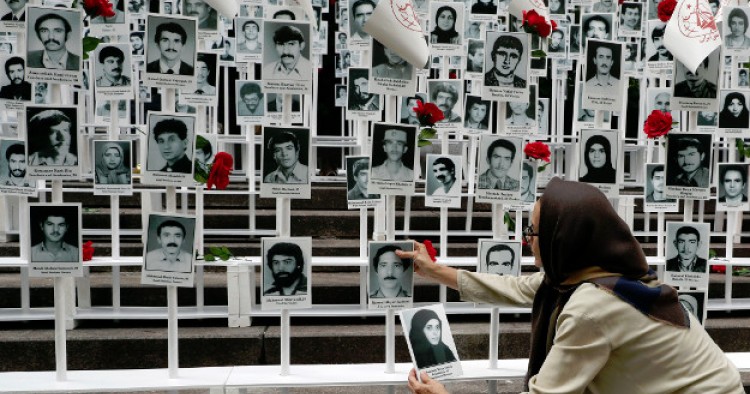On January 18, Amnesty International strongly criticized Iran’s “persistent use of cruel and inhuman” corporal punishments, including internationally banned methods such as floggings, amputations and forced blinding. In one recent case mentioned in the report, Iranian authorities had lashed a journalist 40 times for inaccurate reporting.
“The authorities’ prolific use of corporal punishment, including flogging, amputation and blinding, throughout 2016 highlights the inhumanity of a justice system that legalizes brutality. These cruel and inhuman punishments are a shocking assault on human dignity and violate the absolute international prohibition on torture and other ill-treatment,” said Randa Habib, the human rights group’s regional director for the Middle East and North Africa.
In its World Report 2017 published earlier this month, the New York-based Human Rights Watch also criticized rights abuses in Iran and noted that President Hassan Rouhan had not improved the country’s human rights situation over the past three years.
“As Rouhani faces elections for a second term in May 2017, the hardline factions that dominate the security apparatus and judiciary continued to crackdown on citizens for the legitimate exercise of their rights, in blatant disregard of international and domestic legal standards,” the report added. “Iranian dual nationals and citizens returning from abroad were at particular risk of arrest by intelligence authorities, accused of being “Western agents.” The report also criticized the Iranian regime’s acts of discrimination and repression against religious and ethnic minorities.
In 2013, Rouhani had made human rights his top campaign slogan. However, as the latest reports indicate, he has not fulfilled his pledge and is also under increasing pressure by critics at home. Last month, the Iranian president, who is expected to run for reelection in May, unveiled a “Citizens’ Rights Charter” that he promised would guarantee Iranians’ individual rights and civil liberties. But Iranians understand that the overdue and symbolic measure is more election sloganeering than a genuine intent to improve the country’s dismal rights record.
The Middle East Institute (MEI) is an independent, non-partisan, non-for-profit, educational organization. It does not engage in advocacy and its scholars’ opinions are their own. MEI welcomes financial donations, but retains sole editorial control over its work and its publications reflect only the authors’ views. For a listing of MEI donors, please click here.













